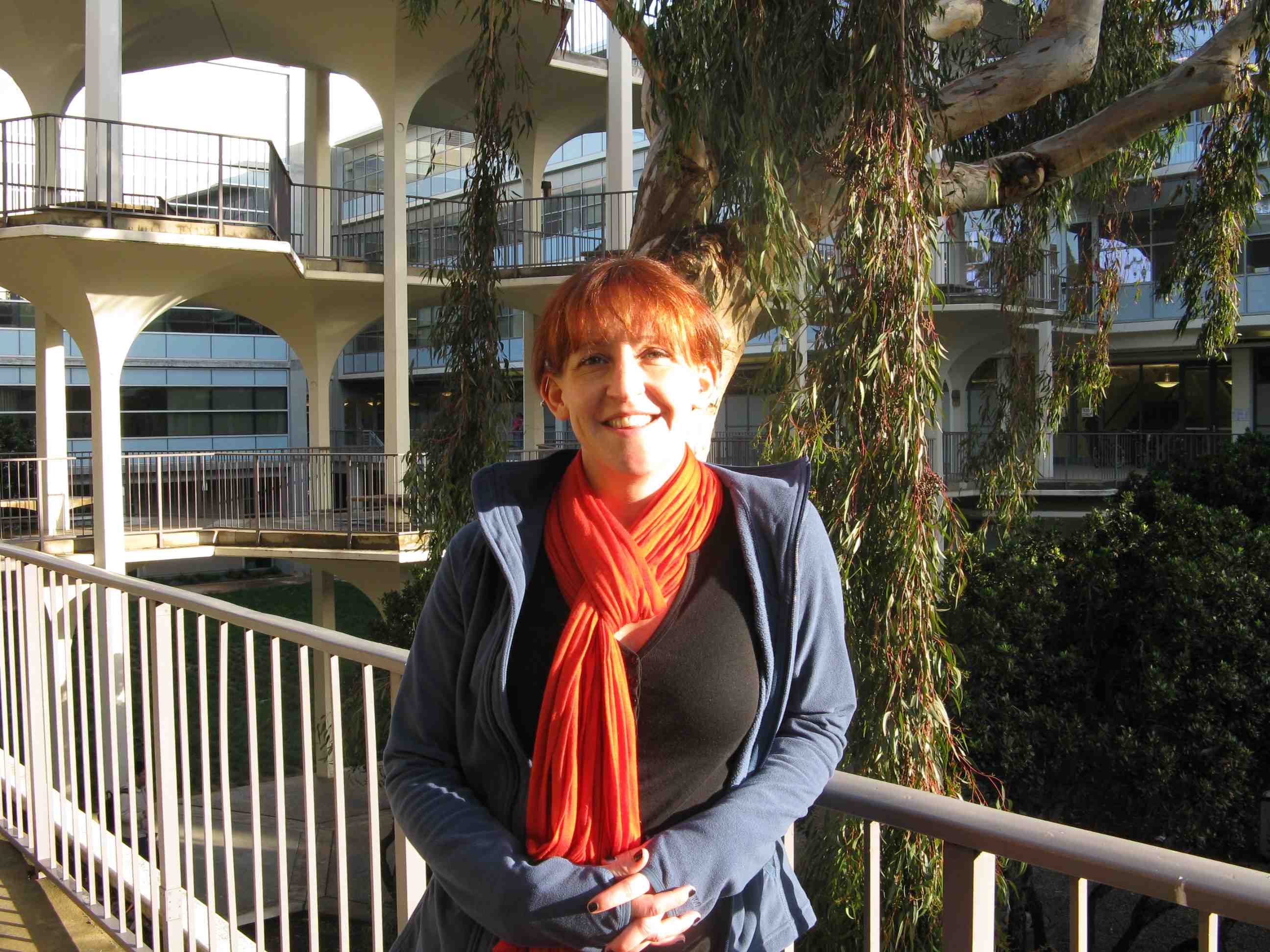HP1-Mediated Epigenetic Regulation of Cell Differentiation and Cancer Progression
Andrea Smallwood
Appointment Period: 2009-2011 / Grant Year: [25,26]
 While genetic mutation is a hallmark of cancer, many cancers also acquire epigenetic alterations during tumorigenesis including aberrant DNA hypermethylation of tumor suppressors as well as changes in chromatin modifications as caused by genetic mutations of the chromatin-modifying machinery. It is now well recognized that chromatin binding proteins can be a novel class of therapeutic targets for various cancers. The HP1 family members are among the first chromatin binding proteins to be identified. The different members of this family appear to function independently in a variety of developmental and differentiation processes. HP1- alpha and -beta play a role in regulating skeletal muscle development and regulation of HP1-alpha levels has been implicated in growth, progression, and drug resistance in breast cancer. In addition, HP1-gamma is associated with multiple human malignant tumors including the breast cancer. However, the targets and mechanisms of action of this family of proteins are still unclear.
While genetic mutation is a hallmark of cancer, many cancers also acquire epigenetic alterations during tumorigenesis including aberrant DNA hypermethylation of tumor suppressors as well as changes in chromatin modifications as caused by genetic mutations of the chromatin-modifying machinery. It is now well recognized that chromatin binding proteins can be a novel class of therapeutic targets for various cancers. The HP1 family members are among the first chromatin binding proteins to be identified. The different members of this family appear to function independently in a variety of developmental and differentiation processes. HP1- alpha and -beta play a role in regulating skeletal muscle development and regulation of HP1-alpha levels has been implicated in growth, progression, and drug resistance in breast cancer. In addition, HP1-gamma is associated with multiple human malignant tumors including the breast cancer. However, the targets and mechanisms of action of this family of proteins are still unclear.
My research has uncovered an unexpected function of HP1 proteins in gene regulation and potentially tumorigenesis. I demonstrated that HP1-gamma plays a critical role in gene regulation at the level of transcription and RNA processing. Targets of HP1-gamma include CDC2L2, CDC25, DDX11, ATM, CCNE1, PIM1, CAV1/2, KLK10 that are known to be involved in cell cycle control and/or tumorigenesis. A manuscript to report this finding has been just been reviewed and is currently in revision. In the meanwhile, I am extending this nice study to map the localization of the other two HP1 family proteins, i.e. HP1-alpha and -beta in multiple cell lines (7 cancer and 1 normal so far) and analyze expression data from HP1-alpha and -beta knockdown cells. This should allow us to compare and contrast the targets and regulatory roles of all HP1 family members.
Black JC, Allen A, Van Rechem C, Forbes E, Longworth M, Tschöp K, Rinehart C, Quiton J, Walsh R, Smallwood A, Dyson NJ, Whetstine JR Conserved antagonism between JMJD2A/KDM4A and HP1gamma during cell cycle progression. Mol Cell. (2010) 40:736-48. PMID: 21145482.
Smallwood A, Hon GC, Jin F, Henry RE, Espinosa JM, and Ren B. HP1gamma Positively Regulates Gene Expression by Aiding in Efficient RNA processing. (2012) Genome Research, in revision.
NOTE: Candidate still in training in the Ren lab although no longer funded by this TG. Andrea remains as an active participant in our TG meetings and activities.
 While genetic mutation is a hallmark of cancer, many cancers also acquire epigenetic alterations during tumorigenesis including aberrant DNA hypermethylation of tumor suppressors as well as changes in chromatin modifications as caused by genetic mutations of the chromatin-modifying machinery. It is now well recognized that chromatin binding proteins can be a novel class of therapeutic targets for various cancers. The HP1 family members are among the first chromatin binding proteins to be identified. The different members of this family appear to function independently in a variety of developmental and differentiation processes. HP1- alpha and -beta play a role in regulating skeletal muscle development and regulation of HP1-alpha levels has been implicated in growth, progression, and drug resistance in breast cancer. In addition, HP1-gamma is associated with multiple human malignant tumors including the breast cancer. However, the targets and mechanisms of action of this family of proteins are still unclear.
While genetic mutation is a hallmark of cancer, many cancers also acquire epigenetic alterations during tumorigenesis including aberrant DNA hypermethylation of tumor suppressors as well as changes in chromatin modifications as caused by genetic mutations of the chromatin-modifying machinery. It is now well recognized that chromatin binding proteins can be a novel class of therapeutic targets for various cancers. The HP1 family members are among the first chromatin binding proteins to be identified. The different members of this family appear to function independently in a variety of developmental and differentiation processes. HP1- alpha and -beta play a role in regulating skeletal muscle development and regulation of HP1-alpha levels has been implicated in growth, progression, and drug resistance in breast cancer. In addition, HP1-gamma is associated with multiple human malignant tumors including the breast cancer. However, the targets and mechanisms of action of this family of proteins are still unclear.